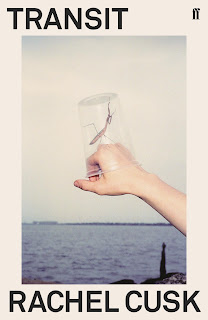As this sequel to Atwood’s worldwide bestseller and Hulu serialized drama, The Handmaid’s Tale was coming to a close I grew anxious. ‘There are’t enough pages left to wrap this up,’ I thought, but I wasn’t giving Atwood and her editors enough credit.
The story is Atwood’s conversational response to readers who wanted to know what happened to characters left in extremis at the end of A Handmaid’s Tale. Atwood’s wonderful sense of humor brings the sharp-eyed, lumpy woman adorned in brown burlap and known as Aunt Lydia to life. Her diary is being composed as we read:
“Two roads diverged in a yellow wood, and I took the one most travelled by. It was littered with corpses, as such roads are. But as you will have noticed, my own corpse is not among them.”This turns out to be one page in Aunt Lydia’s apologia for misdeeds first forced upon her and then undertaken as a means to an end. Whose end we learn at the finish.
Two more points of view are given in short, discontinuous and not always parallel histories. A young girl growing up privileged in Gilead discovers at thirteen that she is considered marriageable. The horror of that notion stirs rebellion within her. An orphaned teen in Canada learns her guardians have been car bombed. She apparently has some debts to pay.
Atwood braids these three stories, giving each voice real distinction and character. Our mind’s eye has each firmly in sight as they gradually find themselves within arm’s reach of one another. One of the girls tells the other that Aunt Lydia is the “scariest of all the Aunts…You get the feeling she wants you to be better than you are…She looks at you as if she really sees you.” Hmm, yes.
What was most interesting to me as I blazed through this big book—it is very easy to read, a straight-line adventure story—is how Atwood could see so clearly certain social and political trends that are evidenced in our society now. Her clarity and comprehensiveness of view reveals so much about her own personality. She’d be a wonderful friend.
Vermont and Maine get top billing as states on Gilead’s border where residents are known to be willing to transport ‘grey market’ goods like lemons or escaping girls. A New Englander myself, I was disappointed New Hampshire was not similarly viewed until I considered the White Mountains would pose a significant barrier to anyone expecting to travel past them to the north.
In the end, I was gratified to discover Portsmouth, NH was chosen as a key location for by-sea person-smuggling from Gilead, just as it had been historically for black slaves of old seeking freedom in the north.
It is difficult to avoid Atwood’s premise that literature must be destroyed in a repressive state because new, creative notions about how to live are subversive. Atwood picked out for especial notice books that would be have an enormous impact on impressionable minds, like Jane Eyre, Anna Karenina, Tess of the D’Ubervilles, Paradise Lost, and Lives of Girls and Women.
I haven’t read the last but would like to, now. I might take issue with Paradise Lost. I read that again a couple years ago to compare it to Jamaica’s Kincaid’s memoir See Now Then and I can honestly say that book is too dense, particularly for young girls who are just learning to read. But Atwood probably knows better. When one’s library is limited, sometimes one’s understanding becomes sharpened.
When the girls in Gilead were finally able to read, it came as a shock to them that the Aunts had lied to them about the Bible. The Aunts had told the girls that the dismemberment story of the concubine, while horrific, was an act of sacrifice, a noble and charitable act. Reading the words themselves the girls discovered there was only degradation and hatred in the killing of an innocent.
“I feared I might lose my faith. If you’ve never had a faith, you will not understand what that means. You feel as if your best friend is dying, that everything that defined you is being burned away; that you’ll be left all alone.”We have to have some empathy, then, for those who will lose their faith, however weak it has become over the years, in a political party now called Republican. It is sad, this death of belief.
Very very glad to hear from Margaret Atwood again. I miss her already.
View all my reviews Tweet

















